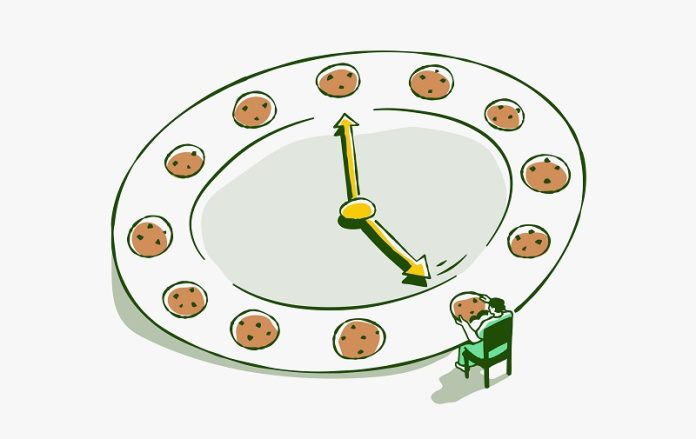
Intermittent fasting, often called time-restricted eating (TRE), has become a popular way to lose weight and boost health.
Many people believe that limiting eating to a set time window—such as eight hours a day—can improve metabolism even without cutting calories.
However, new research from the German Institute of Human Nutrition Potsdam-Rehbruecke (DIfE) and Charité—Universitätsmedizin Berlin challenges that idea.
In the new ChronoFast study, scientists found that when people ate the same number of calories as usual, simply changing their eating window did not improve blood sugar, cholesterol, or other key metabolic measures.
The results were published in Science Translational Medicine and led by Professor Olga Ramich, who studies molecular metabolism and nutrition.
TRE involves eating within a 10-hour window or less, followed by at least 14 hours of fasting each day. Animal research has shown impressive results, including protection against obesity and diabetes.
Human studies have also hinted at benefits like better insulin sensitivity, lower triglycerides, and weight loss. But there’s been a big question: Are these improvements caused by the fasting schedule—or because people naturally end up eating fewer calories?
To find out, Ramich and her team designed a tightly controlled experiment. They recruited 31 women with overweight or obesity for a randomized crossover study.
Each participant followed two two-week eating schedules: one early schedule (from 8 a.m. to 4 p.m.) and one late schedule (from 1 p.m. to 9 p.m.). Crucially, the meals were isocaloric—meaning participants consumed the same number of calories and nutrients each time.
The researchers took blood samples, performed glucose tolerance tests, monitored 24-hour glucose levels, and tracked physical activity. Despite the careful control, the results showed no meaningful improvements in insulin sensitivity, blood sugar, blood fats, or inflammation after either eating schedule.
“Our results suggest that the health benefits seen in earlier studies were likely due to unintentional calorie reduction rather than the shorter eating window itself,” said Ramich.
However, the study did reveal one interesting effect: time-restricted eating influenced the participants’ biological clocks. The researchers found that the body’s internal timing system shifted by about 40 minutes depending on whether people ate earlier or later. Those who ate later tended to go to bed and wake up later as well. “The timing of food intake acts as a cue for our biological rhythms—similar to light,” explained first author Beeke Peters.
In short, just changing when you eat won’t boost your metabolism unless you also eat fewer calories. Ramich concluded, “If you want to lose weight or improve your metabolic health, it’s not only about when you eat—it’s also about how much you eat.”
Future research will explore whether combining calorie reduction with specific eating windows could enhance health benefits and how factors like genetics and sleep patterns affect the results.
If you care about health, please read studies about how Mediterranean diet could protect your brain health, and the best time to take vitamins to prevent heart disease.
For more health information, please see recent studies about plant nutrients that could help reduce high blood pressure, and these antioxidants could help reduce dementia risk.
Source: KSR.



